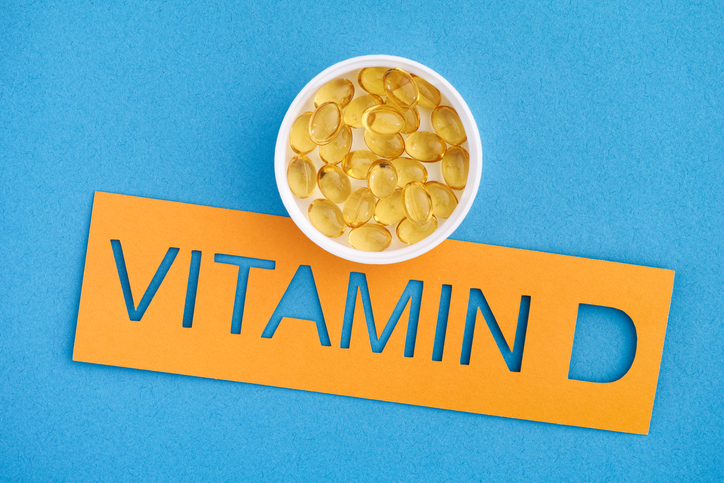If You Are Depressed, A Vitamin D Supplement Could Be Life-Saving

By Joy Stephenson-Laws, J.D., Founder
In his recent State of The Union speech, President Biden addressed the mental health crisis among veterans and said that this country loses 17 veterans a day “to the silent scourge of suicide,” according to this report from The Hill.
He also said that the Department of Veterans Affairs “is doing everything it can, including expanding mental health screenings [and] proven programs that recruits veterans to help other veterans understand what they’re going through and get the help they need.”
Although I agree health screenings and proven programs are critical, I think another tool that could really help is nutrition.
Micronutrients are ofen overlooked.Every single one of us needs six basic nutrients to live – water, protein, fat, carbohydrates, vitamins and minerals. The latter two of this list are called micronutrients, and they are absolutely essential to our overall physical and mental health.
“You need large amounts of macronutrients—proteins, fats, and carbohydrates. And while you only need a small number of micronutrients—vitamins and minerals—failing to get even those small quantities virtually guarantees disease,” reports Harvard Health Publishing.
There is a clear link between diet and mental health issues. So many of us, in fact most of us, are not getting those small quantities of micronutrients that we need on a daily basis to keep us physically and mentally active.
There are a variety of factors that could be the culprit behind this depression issue. These include habits such as eating a nutrient-void, processed foods diet, being older (our bodies do not absorb nutrients as well as we get older), having absorption issues, smoking and drinking too much alcohol (smoking and drinking alcohol both deplete the body of micronutrients).
To fight nutritional deficiencies, it is often necessary to implement supplementation with the advice of a competent healthcare professional. Before supplementing, it is always good to undergo nutrient testing in order to identify any imbalances and deficiencies there may be.
Vitamin D is an interesting micronutrient, because it is the only one that is produced in the body. Also known as the “sunshine vitamin” (because it is produced in the skin in response to sunlight), vitamin D is one of those nutrients that is crucial for maintaining our overall health. Along with helping build and maintain strong bones, vitamin D may balance insulin levels and help with the management of diabetes, support lung function and cardiovascular health and even influence the expression of genes involved in cancer development. A deficiency in this micronutrient may even increase the risk of premature death.
It is not uncommon for people to be vitamin D deficient, especially if they spend a lot of time indoors or live in a colder climate with not a lot of sunlight year-round. People with darker skin are also at a higher risk for vitamin D deficiency. Darker skin contains more melanin (which is essentially pigment), which provides more of a barrier from absorbing sunlight and being able to make vitamin D (compared to lighter skin).

One study suggests that President Biden might want to implement vitamin D testing and supplementation for veterans asap. In a recent study of more than one million U.S. veterans, researchers suggested that supplementation with vitamin D3 (animal sources) and D2 (plant sources) was linked to a 45 percent and 48 percent lower risk of suicide and self-harm.
Furthermore, “The benefit was seen specifically among veterans who had low vitamin D levels to begin with, as well as Black veterans -- who may be at greater risk of insufficient vitamin D stores,” according to this report discussing the study.
Dr. Christine Crawford, a psychiatrist referenced in the report, said that it has been known that being deficient in vitamin D can cause depressive symptoms such as chronic fatigue and mood changes. This is evident in prior studies, such as this one published in 2020, which found evidence suggesting that vitamin D supplementation reduced negative emotions.
In addition to veterans, so many other Americans suffer with depression and may be able to benefit from addressing nutrient deficiencies and implementing supplements.
Depression and other mental health issues usually have to be treated with a variety of methods, and, for some, medication is necessary. Talk therapy and even workout therapy (endorphins may help) are also very popular, but I think nutritional therapy is often overlooked. Along with maintaining a healthy diet, supplementation may be key. And, again, the only way to know where you stand is to take a nutrient test. Even after implementing a supplement routine, you should still undergo routine testing to determine where you stand and see if anything as far as diet and supplements need to be altered.
As discussed, we get vitamin D from exposure to the sun but people often have to depend on vitamin D fortified foods and supplements. Speak with your doctor or a competent healthcare professional. Do not try to supplement without guidance. This can be extremely dangerous, as we have seen in stories of supplement overdose. Vitamin D intoxication can happen. You always want to seek professional guidance so that you are getting quality supplements.
For more information on how to help prevent and manage depression, check out these pH Labs blogs:
- Thought of Fall Got You Feeling Down? Vitamin D May Be The Answer
- Nutritional Help to Fight Depression in Women
- Can’t Get Depression Out Of Your Mind? Get Outside
- Depression in Menopause is Common, But You Can Be Proactive
- Playing Games May Help Avoid Depression
- Is Your Diet Damaging Your Brain?
- The Real ‘Happy Meal’ May Be Fruits and Vegetables
Please keep in mind that micronutrient supplementation is not a replacement for antidepressants and other medications used to treat mental health disorders. You never want to stop taking your medication or change your treatment plan without speaking with a competent health professional.
Enjoy your healthy life!
Disclaimer: This article is not intended to provide medical advice. Please consult with your doctor or another competent healthcare practitioner to get specific medical advice for your situation.
The pH professional health care team includes recognized experts from a variety of health care and related disciplines, including physicians, attorneys, nutritionists, nurses and certified fitness instructors. This team also includes the members of the pH Medical Advisory Board, which constantly monitors all pH programs, products and services. To learn more about the pH Medical Advisory Board, click here.







